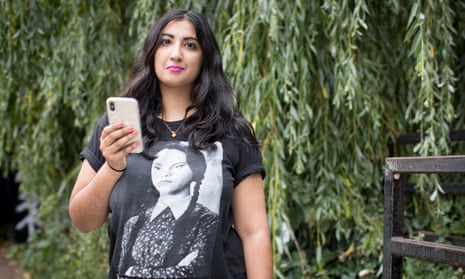‘It always happens when you least expect it.” Or so the adage goes; the romantic notion that the job of your dreams or the love of your life will appear when you’re not trying. In my life, this does not ring true: every job I’ve landed I tried very hard to get, and even in the realm of love there has been work to nurture and maintain it.
But when it comes to better mental calm, it did arrive when I least expected it, as an unintended consequence of a tiny tweak: turning notifications off on my phone.
I discovered this life-transforming trick while on holiday in Bali. I had already muted notifications related to work (email pings, Slack, Gchat), but still found myself woken up in the middle of the night by the phone vibrating incessantly from conversations happening in the UK across WhatsApp and social media. Next, I switched off all notifications for Twitter, Instagram and Facebook. I also silenced WhatsApp, which – with all the various group chats – could easily alert me more than 100 times a day.
When I got back to the UK, I saw no reason to put any of these notifications back on, be it work or social. Life was still busy and hectic, but less harsh, somehow. It was as if someone had turned the volume down on my life ever so slightly.
I decided to cull even more notices. The news blasts were the first to go: I did not need to be notified hourly about a worsening pandemic that I was helpless to do anything about. Then I disabled the notifications from the dozens of fitness apps that “remind me” (read: chide me) that I have not exercised that day, which I already know. Notifications of store discounts, gone; holiday deals, goodbye. One by one, as a notification popped up on an app, I got rid of it, until just a few crucial ones remained (eg my period tracking app and the one with transport updates about my commute). Rather than my phone buzzing every 20 minutes, it was once every few days.
I’d love to say that doing this brought down my overall screen time; that without prompting I did not look at my phone as much. I’d love to say that the evils of the blue screen – their alleged impact on our sleep and keeping us sedentary – are now banished from my life, and that instead of hungrily reading articles or watching YouTube videos of Gordon Ramsay being mean to restaurateurs, I flick through history books and go for long walks. But turning off notifications did not give me a personality transplant. My internet-centric behaviours, long programmed inside me, did not wither away.
Rather, what it did was stop the feeling of shock associated with being buzzed by the world. A notification, like a telephone call out of the blue, essentially says: “Stop everything and look at me right now.” It’s disconcerting; it keeps you in a state of high alert that is stressful and draining, especially when the content may require immediate action. Think of cutting alerts like a digital detox, but less smug, more sustainable and still with access to Google Maps.
Stress is the common factor in many behaviours widely understood to be bad for our health – drinking too much booze, smoking cigarettes, even eating unhealthy food. (There is some evidence to suggest that cortisol – the hormone released when we feel stress – makes us crave high fat and sugary foods.) And, these days, many of life’s stressors are communicated via the mobile phone. I cannot stop these stressors, but by turning off notifications, I can at least stop them ambushing me. It’s an action that helps me regain some sense of control. For example, when I open up a news app, I am ready to find out what is happening in the world. It is different from being in the supermarket cheese aisle and getting an alert, where – as part of a whole barrage of communications – I may feel blindsided.
One of the great issues of modern life is our overinflated sense of importance. We think: “What if someone needs me urgently?” However, being “needed” is quite rare – wanted, maybe – but needed as an ordinary person who is not a head of state, health worker or something similar? I’m not so sure.
Has anyone even noticed I am slower to respond? Have I had a single comment about being slower to reply, from anyone? The answer is a resounding no.
I should mention that this neat little tweak is not a magic bullet. The fact I also do yoga and occasionally see a therapist plays a big part in my increased mental calm. But I felt the difference of doing this instantly, and it felt significant.
Turning off notifications is the life-changing tweak that I will never go back from. It’s not a trick anyone can make money from, and so perhaps most people will never hear of it – although hearing less from the world might be exactly what is needed.
